BBC News, Monrovia & Nairobi
US President Donald Trump has praised Liberian President Joseph Boakai for speaking “good English” and asked him where he went to school.
What Trump might have missed is that Liberia shares a unique and long-standing connection with the US.
English is the country’s official language and many Liberians speak with an American accent because of those historical ties to the US.
It may have been this accent that Trump picked up on.
Here are five things to know about the country:
Founded by freed slaves
Liberia was founded by freed African-American slaves in 1822 before declaring independence in 1847.
Thousands of black Americans and liberated Africans – rescued from transatlantic slave ships – settled in Liberia during the colonial era.
Former US President Abraham Lincoln officially declared Liberia’s independence in 1862 but the country retained a lot of US heritage and it remained in the American “sphere of influence” during the colonial period.
Due to this integration, Liberian culture, landmarks, and institutions have a heavy African-American influence.
Ten of Liberia’s 26 presidents were born in the US.
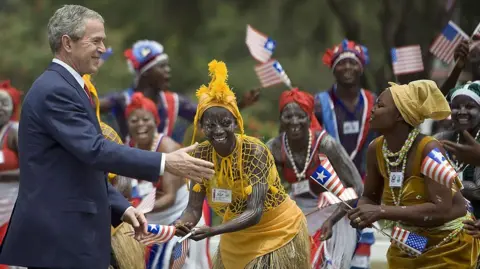 AFP via Getty Images
AFP via Getty ImagesThe capital is named after a former US president
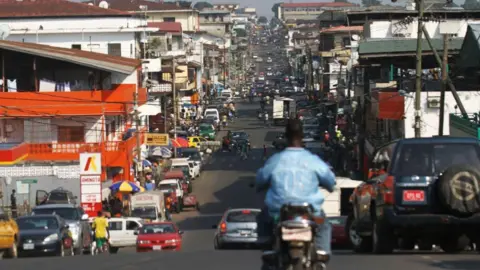 Reuters
ReutersLiberia’s capital, Monrovia, was named in honour of America’s 5th President, James Monroe, who was a strong supporter of the American Colonization Society (ACS).
The ACS was the organisation responsible for resettling freed African-Americans in West Africa – which eventually led to the founding of Liberia.
Not surprisingly the early architecture of the city was largely influenced by American-style buildings.
Many streets in Monrovia are named after colonial American figures, reflecting the city’s founding and historical ties to the US.
Nearly identical flags
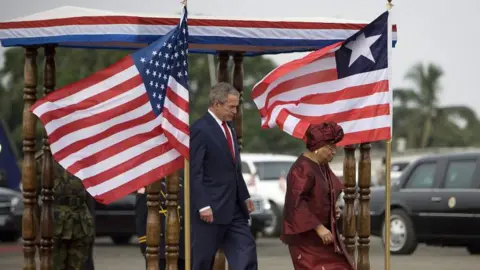 AFP via Getty Images
AFP via Getty ImagesThe flag of Liberia closely resembles the American flag. It features 11 alternating red and white stripes and a blue square with a single white star.
The white star symbolises Liberia as the first independent republic in Africa.
The US flag, in comparison, has 13 stripes representing the original 13 colonies and 50 stars, one for each state.
The Liberian flag was designed by seven black women – all born in America.
Ex-president’s son plays for US football team
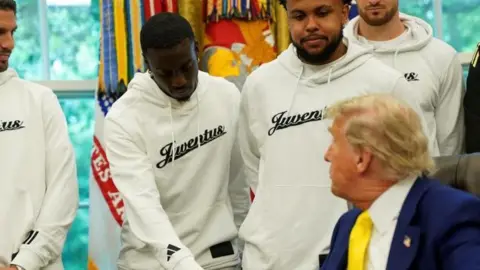 Reuters
ReutersTimothy Weah, the son of Liberia’s former President George Weah, is an American professional soccer player who plays for Italian club Juventus as well as the US national team.
The 25-year-old forward was born in the US but began his professional career with Paris St-Germain in France, where he won the Ligue 1 title before moving on loan to the Scottish team, Celtic.
His father, George, is a Liberian football legend who won the Ballon d’Or in 1995 while playing for Juventus’s Italian rivals AC Milan. He is the only African winner of this award – and went on to be elected president in 2018.
Former president won the Nobel Peace Prize
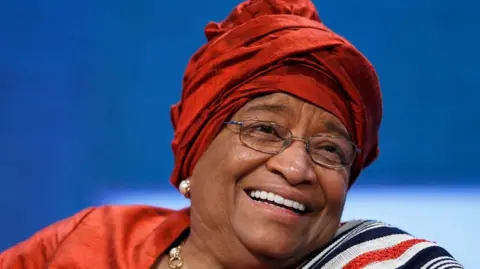 Reuters
ReutersLiberia produced Africa’s first elected female president, Ellen Johnson Sirleaf.
She was elected in 2005, two years after the nation’s bloody civil war ended, and served as president until 2018.
Sirleaf has a strong American background as she studied at Madison Business College and later went to Harvard University where she graduated as an economist.
She has received worldwide recognition and accolades for maintaining peace during her administration.
Her story is pitted with remarkable feats of defiance and courage.
In 2011, along with Leymah Gbowee and Tawakkul Karmān, she won the Nobel Prize for Peace for her efforts to further women’s rights.
In 2016, Forbes listed her among the most powerful women in the world.
What do Liberians make of the comments?
There has been a mixed reaction.
Accountant Joseph Manley, 40, told the BBC that Trump should have been properly briefed before meeting Liberia’s leader.
“Liberia has always been an English-speaking country. Our president represents a country with a rich educational tradition.”
For human resources professional Henrietta Peter-Mogballah, The US president’s surprise at Boakai’s eloquence reflects a broader problem of global ignorance about African nations and its peoples.
“From travel experiences and observations, most citizens of other nations outside Africa do not know a lot about African countries,” she said. “The few that know a little, their minds are clouded by narratives of war, poverty, and lack of education.”
While many have criticised Trump, others see nothing wrong in his comments.
“I believe President Trump’s remark was a genuine compliment on President Boakai’s command of English,” lawyer and politician Kanio Gbala told the BBC. “There is no evidence of sarcasm. Reading it as disrespectful may reflect political agendas.”
More about Liberia from the BBC:
 Getty Images/BBC
Getty Images/BBC
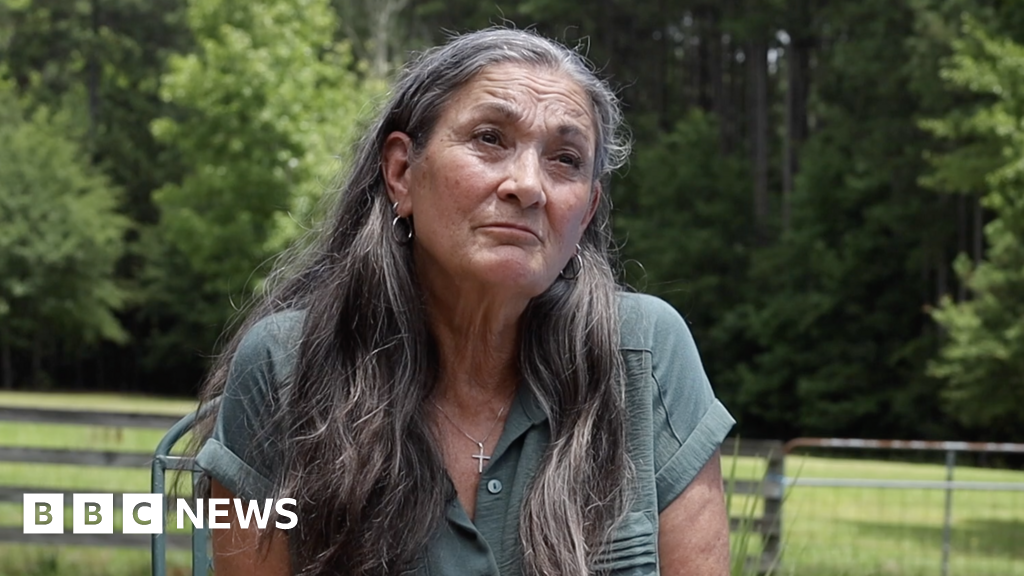
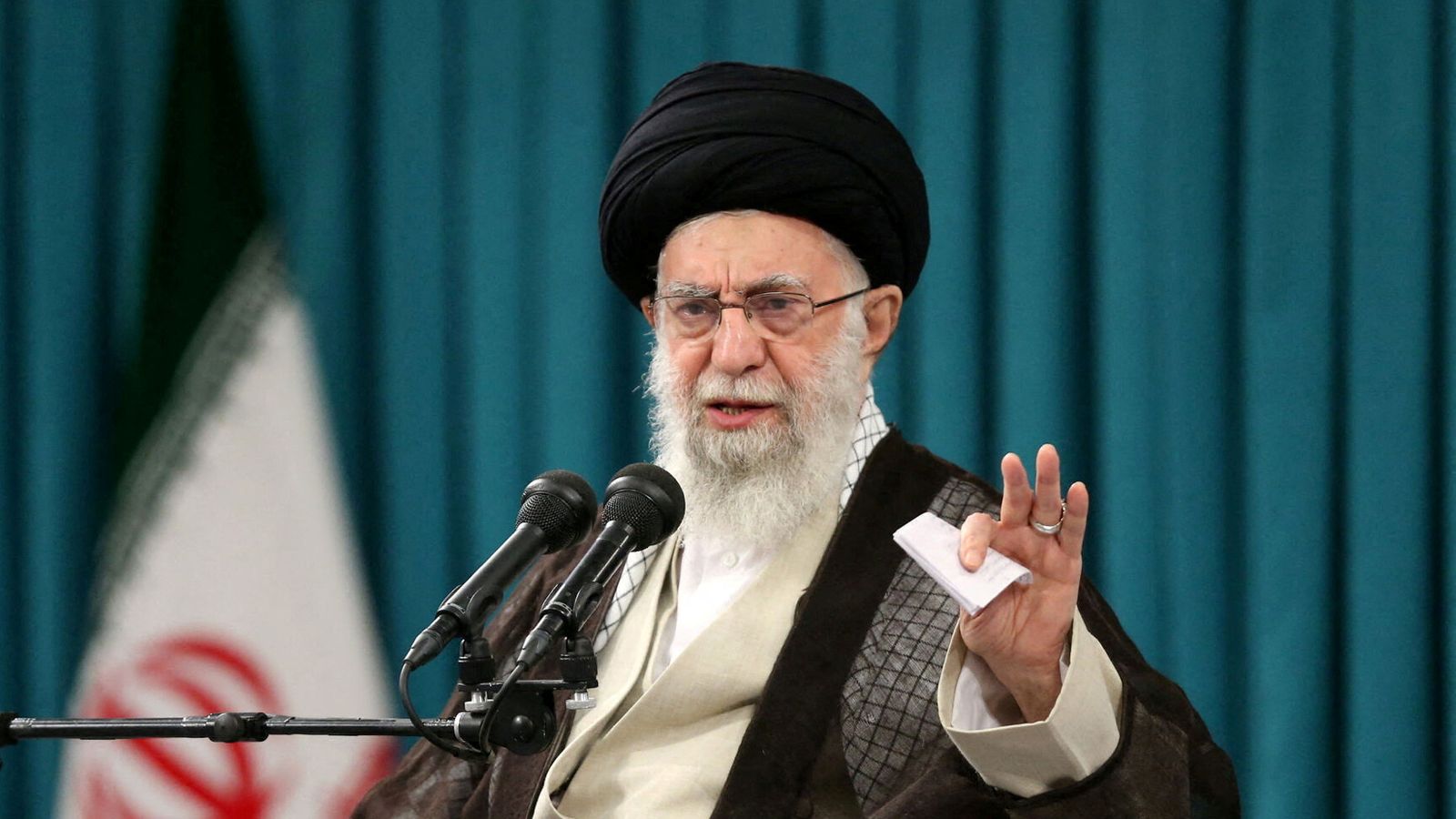
Leave a Comment